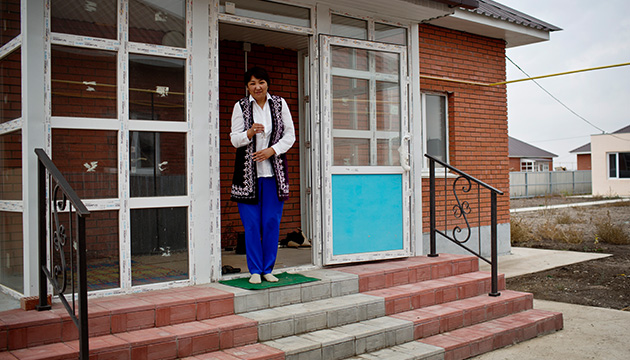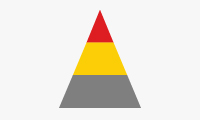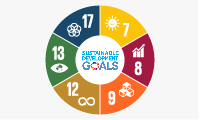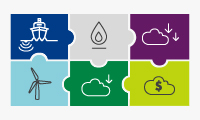Social performance
Social Performance plays a key role in delivering Shell’s business strategy at the community level. Building strong relationships with people, understanding their priorities and concerns and managing our impact on them are essential to being a responsible company.
Highlights in 2017
- We made significant progress towards completing the resettlement of families in the village of Berezovka in Kazakhstan.
- We registered archaeological finds with the Iraqi government in our role as the operator of the Majnoon oil and gas field, a site of rich cultural heritage.
Our projects and operations can impact our neighbours. Our social performance team, working with environmental specialists, assesses and manages the impact of Shell’s business to ensure that work is carried out in a responsible way. The team also contributes to building skills in the communities where we operate by supporting education and training programmes, and by encouraging the development of local businesses.
We apply local laws and the principles of international law in our work. Shell's Control Framework uses international standards as benchmark, such as those set out by the International Finance Corporation.
We assess and manage the potential social impact of our projects as part of integrated environmental, social and health impact assessments. Our engagement is essential to identifying how we might impact people and to helping us design and apply impact monitoring and mitigation measures.
In Alberta, Canada, at the Shell Scotford complex, we consult local people who may be affected by our activities and find ways to address their specific issues. For example, in 2017 the Scotford team discussed with a local farmer how to minimise unwanted snow melt and rainwater that were running off a Shell well pad at our carbon capture facility. These discussions led to a project that will divert the water and ensure the landowner’s crops do not get water-logged.
At the end of a project’s life cycle, we take great care with decommissioning. In 2017, after we decided to exit the Jinqiu tight gas exploration project in Sichuan province, China, we worked closely with local farmers to ensure that drill sites were restored to productive arable use, and we used recycled project materials to pave a local road and build irrigation systems for eight communities.
Community feedback in 2017
Shell’s network of around 100 community liaison officers act as a bridge between the local community and the project or asset. We have implemented community feedback mechanisms at all of our operations and projects to receive, track and respond to questions and complaints from community members. This enables us to capture and resolve concerns quickly in a transparent way, and to track our performance.
Types of complaints received in 2017
Split by category
Enlarge imageSeveral of our exploration locations off the coast of Colombia include Afro-descendants and Wayuu and Arahuacos indigenous groups whose main livelihood is fishing using traditional methods. We identified them as vulnerable communities and recognised that we could impact their way of life or that they could impact our operations.
We have worked to better understand the cultural norms and socio-economic needs of the region, with three Shell employees staying with communities over the last five years.
The fishermen and women reported that they often lost colleagues at sea or were frequently injured in fishing trips. Together, we evaluated the causes and frequency of the accidents and identified ways to improve safety and prevent the most serious incidents. We also provided the communities with equipment, including GPS navigation, boats and motors. Overall, 800 people were involved in the programme. You can read more about our work with these communities on www.shell.com.
Social complaints received in 2017
Split by category
Enlarge imageEnvironmental complaints received in 2017
Split by category
Enlarge imageResettlement
Our operations sometimes require temporary or permanent access to areas of land or sea where people are living or working. Where resettlement is unavoidable, we work with local communities to help them relocate and maintain, or improve, their standard of living. If necessary, we help support them as they establish alternative livelihoods.
As a result of the BG acquisition, Shell became joint operator of Karachaganak Petroleum Operating BV (KPO, Shell interest 29.25%) in Kazakhstan. In 2015, the government approved an expansion of the safety perimeter around the Karachaganak field, which required two villages to relocate. Led by the regional government and funded by KPO, around 464 families from these villages were resettled in line with international best practice.
In late 2015, the first 82 families were successfully resettled. The second phase of resettlement was nearly completed by the end of 2017 and we are working with the government to ensure that the remaining 382 families in the village of Berezovka have comparable or better housing and that their livelihoods are restored. Read more about the resettlement and the positive impact it has had on local residents' lives at www.shell.com/building-new-lives-kazakhstan.

We are working to ensure that resettled families in the village of Berezovka, Kazakhstan, have comparable or better housing and that their livelihoods are restored.
Indigenous peoples
Our activities in certain parts of the world affect indigenous peoples who hold specific rights for the protection of their cultures, traditional ways of life and special connections to land and water.
Our approach is to continue seeking the support and agreement of indigenous peoples potentially affected by our projects. We do this through mutually agreed, transparent and culturally appropriate consultation and impact management processes. In 2016, Shell developed a public position statement on Free Prior Informed Consent (FPIC), which is based on a pre-requisite to engage in dialogue with local indigenous communities and come to a joint agreement on the way forward in project development. In 2017, we shared outcomes from our involvement with FPIC with the industry through IPIECA, the global oil and gas industry association for environmental and social issues, which enables us to refine how we apply FPIC in our operations.
In Bolivia, the government requires that a percentage of capital investment in the hydrocarbon sector be applied for the social benefit of indigenous and farming communities holding collective land rights. To fulfil this requirement, Shell implemented three social investment programmes after engaging with more than 50 local communities during a 2016 seismic campaign. These programmes involved bee keeping; improving fruit and vegetable production; and building a marketing platform for the communities' agricultural products. In 2017, the Bolivian national oil and gas company recognised Shell's programme as best practice.
We entered the second phase of exploration in the country, drilling the Jaguar exploration well in 2017. Building on the same methodology, together Shell and the local Weenhayek communities decided that the required social investment funds would be used to sustainably increase local agricultural production in communal lands surrounding the well for the duration of the project.
Cultural heritage
Cultural heritage can be tangible, such as treasured artefacts, or intangible, such as language and traditions. Our specialists work to preserve cultural heritage near our operations.
In 2017, Shell was the operator of the Majnoon oil and gas field in Iraq, a site of rich cultural heritage due to its proximity to the area widely held to be the cradle of civilisation. Shell formally registered archaeological finds with the Ministry of Antiquities and handed over the artefacts to the Basrah Museum in 2017, leaving a positive legacy of valuable archaeological data and management practices. You can read more about our work to protect Majnoon's heritage on www.shell.com.
Social investment
We invest in community projects to help people to benefit from social and economic development. This investment is sometimes voluntary and sometimes required by governments, or as part of a contractual agreement. The intent of our social investment programmes is to benefit both Shell as well as society or the environment. Areas on which social investment programmes are focused are determined by local communtitiy needs and priorities.
We aim to deliver business growth and have a positive impact on people. To help us achieve this we have three global social investment themes:
- access to energy;
- science technology engineering and mathematics (STEM) education; and
- community skills and enterprise development.
In 2017, we spent $189 million on social investment of which 41% was required by government regulations or contractual agreements. We spent $111 million on voluntary social investment, of which around $57 million was in line with our global themes. The remaining $54 million was spent on local programmes for community development, disaster relief, education, road safety, health and biodiversity.
Almost $107 million of our total social investment spend in 2017 was in countries that are part of the United Nations Development Programme's Human Development Index 2016. These countries have a gross domestic product of less than $15,000 a year per person. Significant support is also provided in the form of voluntary work by Shell employees and equipment donations.
Social investment in 2017
proportion of spend
Enlarge imageSocial investment in 2017
split by region
Enlarge image Sustainability at Shell
Sustainability at Shell
 Sustainable development goals
Sustainable development goals
 About our data
About our data
 Energy transition and climate change
Energy transition and climate change